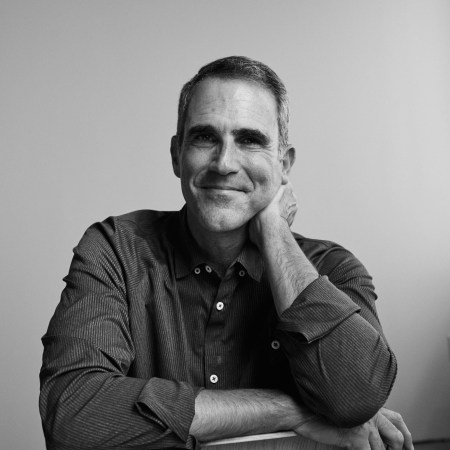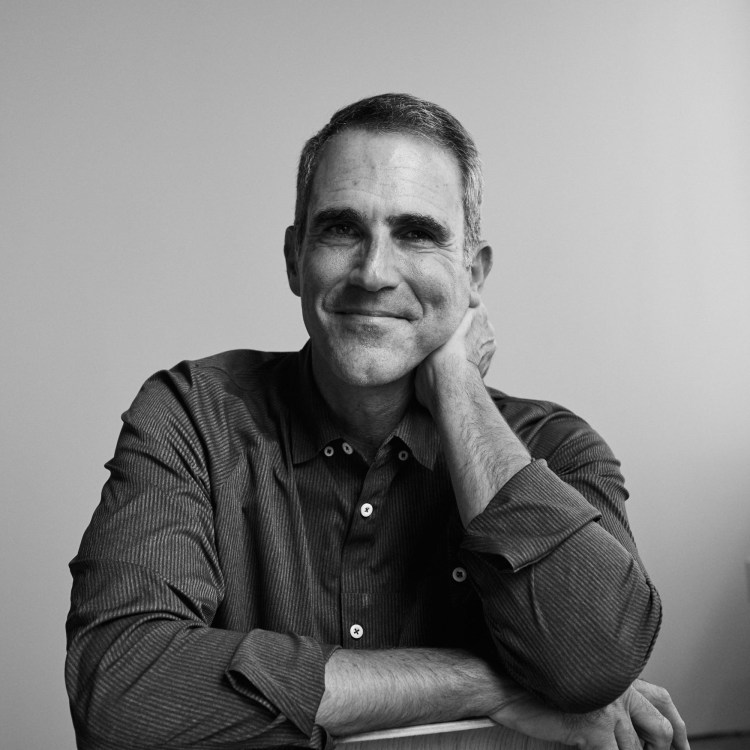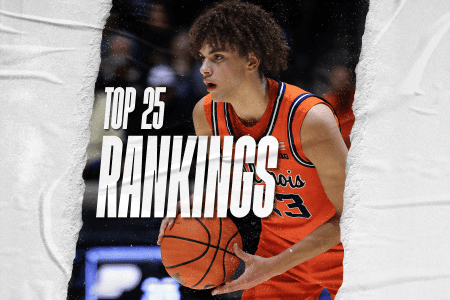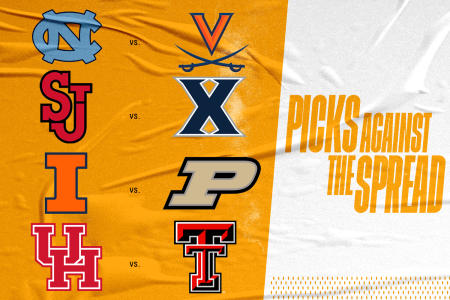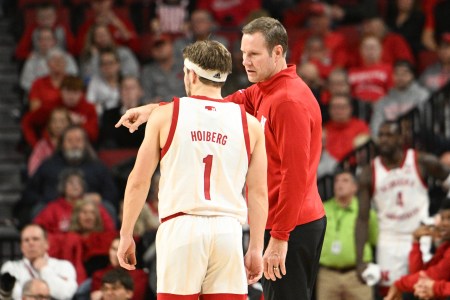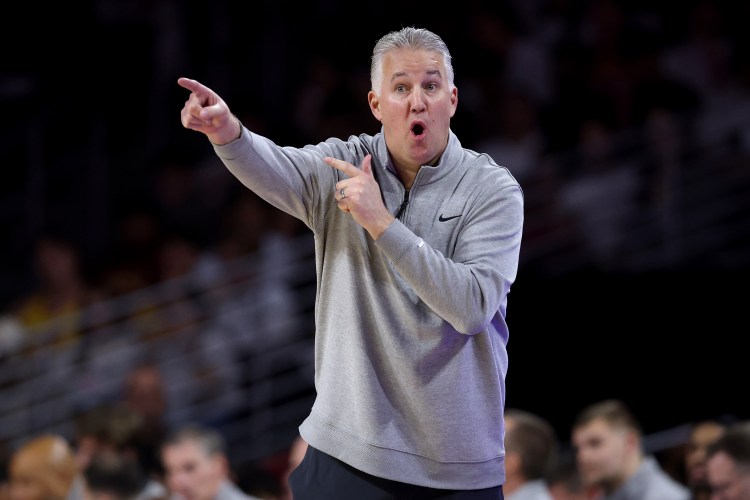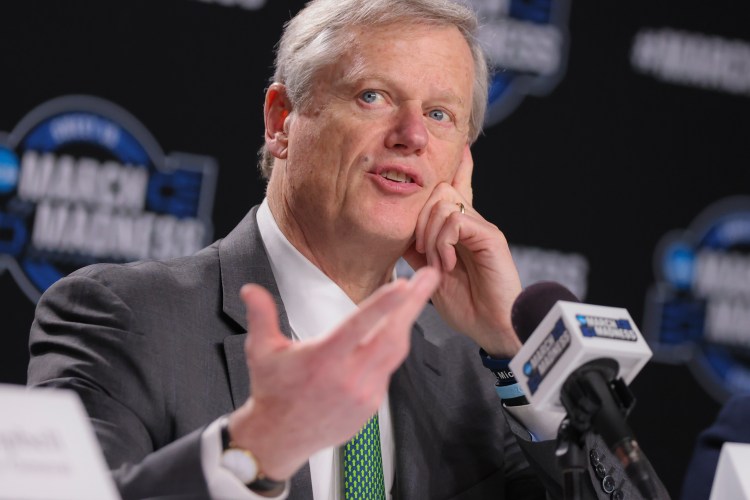If you go by traditional measures, George Raveling’s record was not extraordinary. During his 22 years as the head coach at Washington State, Iowa and USC, his teams won a mere 53.5 percent of their games. He coached in six NCAA Tournaments and never made it to the second weekend. Yet, when news broke on Tuesday morning that Raveling had succumbed to cancer at the age of 88, it reverberated throughout the sport and beyond. That’s because he was a giant in the things that are harder to calibrate but have the greatest value. Raveling’s legacy was written not by games won or lost, but by friendships made, lives touched, and wisdom imparted.
“He would talk a lot about thought partners, and he was the best thought partner there was. He was one of one,” Marquette coach Shaka Smart told Hoops HQ. “But he gave you more than just wisdom. He gave you belief, kindness, just everything you can think of that makes people better. And the thing about it was, he was a mentor to so many, but you could ask anyone that he mentored, and it felt like he was just focused on you.”
Raveling’s empathy and spirit of service were forged during early hardships, and soldered during a lifetime of competition. He was nine years old when his father died of a heart attack. Four years later, his mother was institutionalized in a psychiatric hospital. A local family helped Raveling, who grew up in Washington, D.C., secure a place at a boarding school in Pennsylvania. He was one of the few Black students, but he felt a deep kinship with his white peers who likewise came from broken homes.

Raveling was a serious student who also showed some proficiency on the basketball court, particularly as a rebounder. He was shocked when he learned that that skill could earn him a college scholarship. He played for Villanova and joined the staff as an assistant after he graduated in 1960.
It was during his tenure at Villanova that Raveling had his remarkable brush with history. In August 1963, he and a friend drove to Washington, D.C., to attend the March on Washington for Jobs and Freedom. As they wandered the grounds the night before, one of the organizers spotted the two strong and sturdy young men and asked if they would help with security. That’s how Raveling found himself the next afternoon standing just a few feet away from Martin Luther King Jr. as he delivered his iconic “I Have A Dream” speech on the steps of the Lincoln Memorial.
Raveling was an admirer of Dr. King’s and a burgeoning collector. When King’s speech was done, he gathered the pages he was reading from, turned from the podium, and came face-to-face with Raveling. The coach asked the preacher if he could have the pages. King handed the speech to Raveling, who folded it and stashed it in his pocket.
Having no idea of the historical significance of that moment, Raveling placed the pages into a book and took it with him on his travels. He was 34 when he first became a head coach at Washington State in 1972, making him the first Black head coach in the Pac-8 and the fourth ever hired in Division I. Eleven years later, he became the first Black basketball coach at Iowa. During an interview with a local reporter in Iowa, Raveling mentioned he had attended the March on Washington and had the original copy of Martin Luther King’s speech. The reporter asked to see it, wrote a story about it, and then had the speech treated and framed. He presented it to Raveling as a gift.
When Woj Met Joe: A Basketball Story
Woj Bomb! Joe Grahovac, a top juco prospect from California, is heading for St. Bonaventure. You won’t believe his story.
Over the years, Raveling had countless offers from people willing to buy the document for a lot of money. But he never sold it, claiming it would soil King’s memory and debase his message. He stored the frame in a bank vault for many years. He later donated it to Villanova, his alma mater, and it is now on loan at the National Museum of African American History and Culture in Washington, D.C.
Raveling also had a close tie with another American supernova, Michael Jordan. He and Jordan became close during the 1984 Los Angeles Olympics, where Raveling was an assistant coach and Jordan a player for the U.S. team. When Sonny Vaccaro, Raveling’s then-close friend who worked for Nike, approached Raveling and asked for an introduction, Raveling set up the meeting. That birthed the groundbreaking relationship between Jordan and Nike, and more important, established a lifelong bond between Jordan and Raveling.
As Raveling progressed in his coaching career, he grew his network of younger coaches and went to great lengths to mentor them. That included sending out monthly packets of newspaper clippings on all sorts of topics, most of which had nothing to do with sports. The exercise came to be called “Reading with Raveling.” One of those young coaches was Paul Hewitt, who joined Raveling’s staff at USC as a graduate assistant in 1989 and went on to be a head coach at Siena, Georgia Tech and George Mason. “He had an uncommon will to help people, and he had the resources to do it,” Hewitt said. “We had breakfast maybe once a month, and he always ended every conversation by saying, is there anything you need? Is there anything I can do for you? He liked to say, you should talk to old people, because they’ve traveled the road and they know where the potholes are.”
Raveling’s career came to a premature conclusion in 1994, when he was injured in a severe car accident and retired at the age of 57. From there, he did some television work and spent several years as the Director for International Recruiting at Nike. Over the last 15 years, he worked as a consultant for the Los Angeles Clippers, among other jobs. His real life’s work was maintaining personal connections and mentoring the next generation of coaches. In 2013, the Naismith Memorial Basketball Hall of Fame bestowed on Raveling the John W. Bunn Lifetime Achievement Award. Two years later, the Hall inducted him as a contributor.
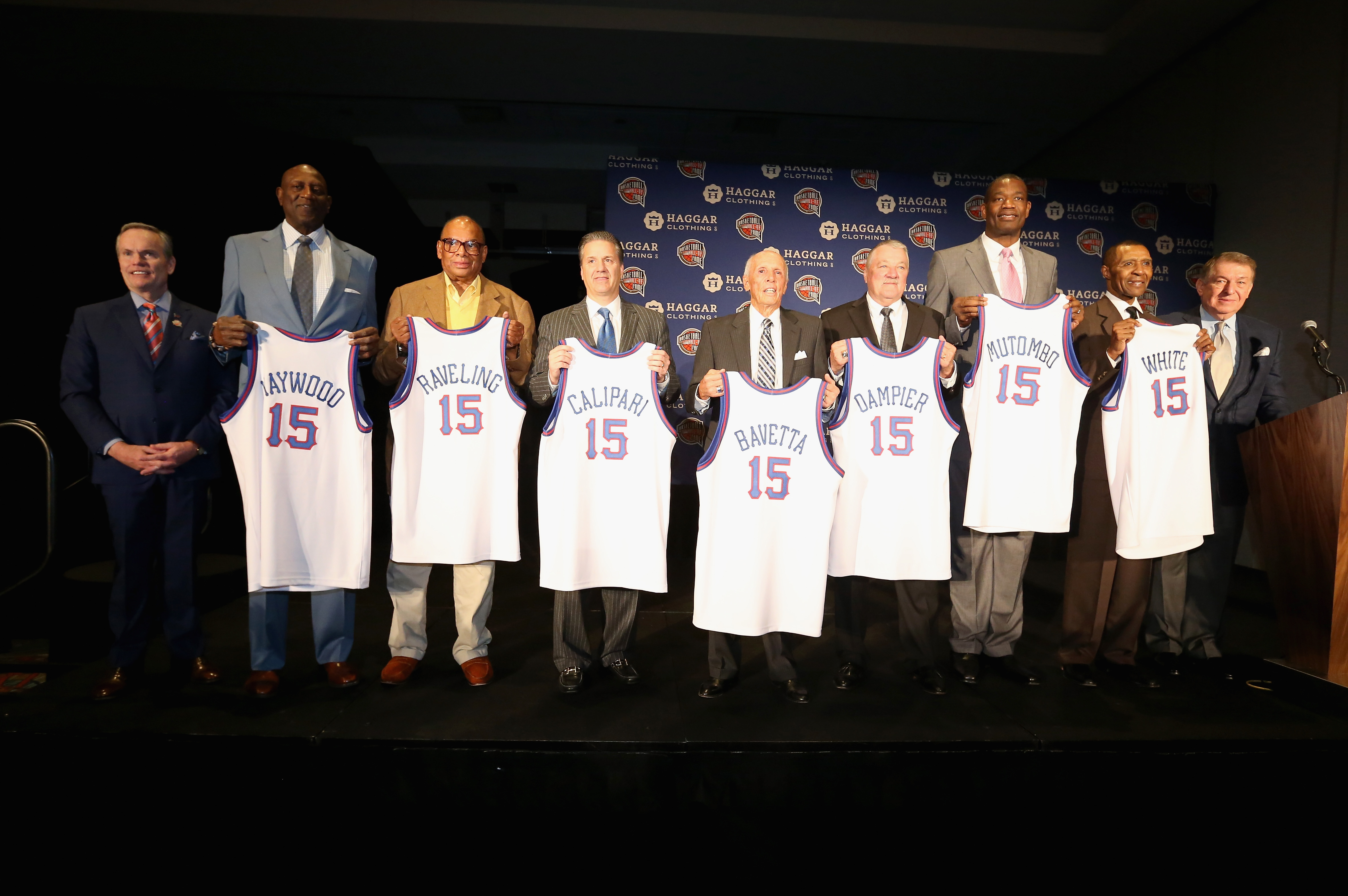
As the years progressed and technology evolved, Raveling found more modern ways to share his thoughts and ideas. That included a website, a newsletter, and a recently published memoir called “What You’re Made For,” which was co-written by Ryan Holiday with a foreword from Jordan. Beyond that, he continued to make himself available for countless hours of private mentorship. “I’ve got so many pages and pages and pages of notes from conversations with him,” Smart said. “He was a prolific sharer of information. It’s almost like he woke up every day saying, I want to make people’s lives better, and this is how I’m going to do it.”
Towards the end of his book, Raveling expounded on his lifetime commitment to mentorship. “It’s not about charity—it’s about honoring a debt and continuing a legacy of generosity and hope,” he wrote. “It’s about recognizing that none of us got where we are solely on our own merits, and that we all have a responsibility to pay forward the blessings we’ve received.”
George Raveling took that responsibility seriously, and lived his life accordingly. He understood that basketball was more than a game, and that the final measure of a coach’s greatness would go beyond the scoreboard. That legacy will now be carried forward by the people who knew him best and loved him most. His work is done, but his cause marches on.
